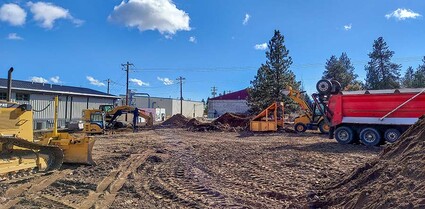Sisters company garners national attention
Last updated 3/2/2021 at Noon
If you bought shares of Laird Superfood (Symbol LSF on NYSE) on September 22 last year, at the opening price of $22, you could have sold them the next day for $40.80 and popped some fine champagne. That was the Initial Public Offering (IPO) price of the Sisters plant-based food-products company which is frequently a topic of conversation in Sisters Country.
The IPO caught the attention of Barron’s, Forbes, Fox Business Channel, Market Watch, The Street, and Yahoo Finance, among others. The shares reached a high of $60.80 since inception. Last week they traded as high as $45.65. This is all the more interesting, considering that despite its explosive sales growth, the company had an operating loss of $8.35 million in the first nine months of 2020 on sales of $18.7 million. Comparable sales in 2019 were $8.9 million.
Prior to its public offering of 2,650,000 shares, the company had six rounds of private funding totaling $51 million. Its total shares outstanding are 8.87 million, translating to a market capitalization of $378 million on February 24.
The fast-growing business currently employs 150 workers. It projects a total workforce of nearly 500 in the next three years, as it meets rapidly expanding demand. The company claims to exceed minimum hourly wage requirements for all workers. Many in the community originally embraced Laird’s ambitious hiring plans, given the lack of living-wage job opportunities in Sisters and dependency on cyclical tourism jobs.
Two-thirds of the jobs are filled by workers residing outside of Sisters, mostly from Redmond and Bend. Fifty-five employees list ZIP code 97759 as their residence. Paul Hodge, CEO, lays the lower proportion of local hires to the lack of affordable housing. He and Paul and Carla Schneider of Sisters have purchased 31 acres from the Forest Service about a quarter-mile from the Laird campus and intend to develop it into a multi-use project with as many as 250 cottages, town homes and multi-family units, partly in hopes of alleviating work-force housing shortages.
Laird’s growing pains come with a price. A number of citizens have been vocal in their concern at how Laird is changing the composition of Sisters. And, as the company’s footprint becomes larger, it no longer resembles the little coffee creamer outfit created by world-famous big wave surfer, Laird Hamilton, in Hawaii.
Neighbors in Clearpine, the 97-unit housing subdivision whose southern boundary is immediately across the street from Laird’s operations, complain about the noise from the 53-foot refrigerated trailers the company has been forced to position in its parking lot that run generators 24/7. The trailers are a temporary solution for product storage until its 27,000-square-foot warehouse is completed. Ground has been broken for the building scheduled for occupancy by summer’s end.
One neighbor on Forest Edge Drive remains dissatisfied, saying, “My husband is confined with Parkinson’s and needs rest and quiet. In the summer we cannot leave our windows open with the noise. Even in winter it is a nuisance.”
Laird is also the recipient of complaints for the high-intensity lighting it has erected in its employee parking lot. Neighbors take issue with the lights’ infringement on the dark-sky movement embodied in Sisters Ordinance 251H. Corrective measures were taken promptly, adjusting the lights’ spread and hours of illumination.
A neighbor on Heising Drive said, “We brought the light issue to their attention and within 36 hours they reached out to us and in a few days we could see workers on the light poles making adjustments. That was the kind of response we expected given Laird’s reputation.”
According to a 2020 study by Ipsos Retail Performance, about 9.7 million Americans now follow a plant-based diet, up from just 290,000 in 2004. This may just be the start. With exponential demand likely, the plant-based market could be worth $74.2 billion in the next seven years, according to Meticulous Research. Laird Superfood is very much in the mix.


















Reader Comments(0)